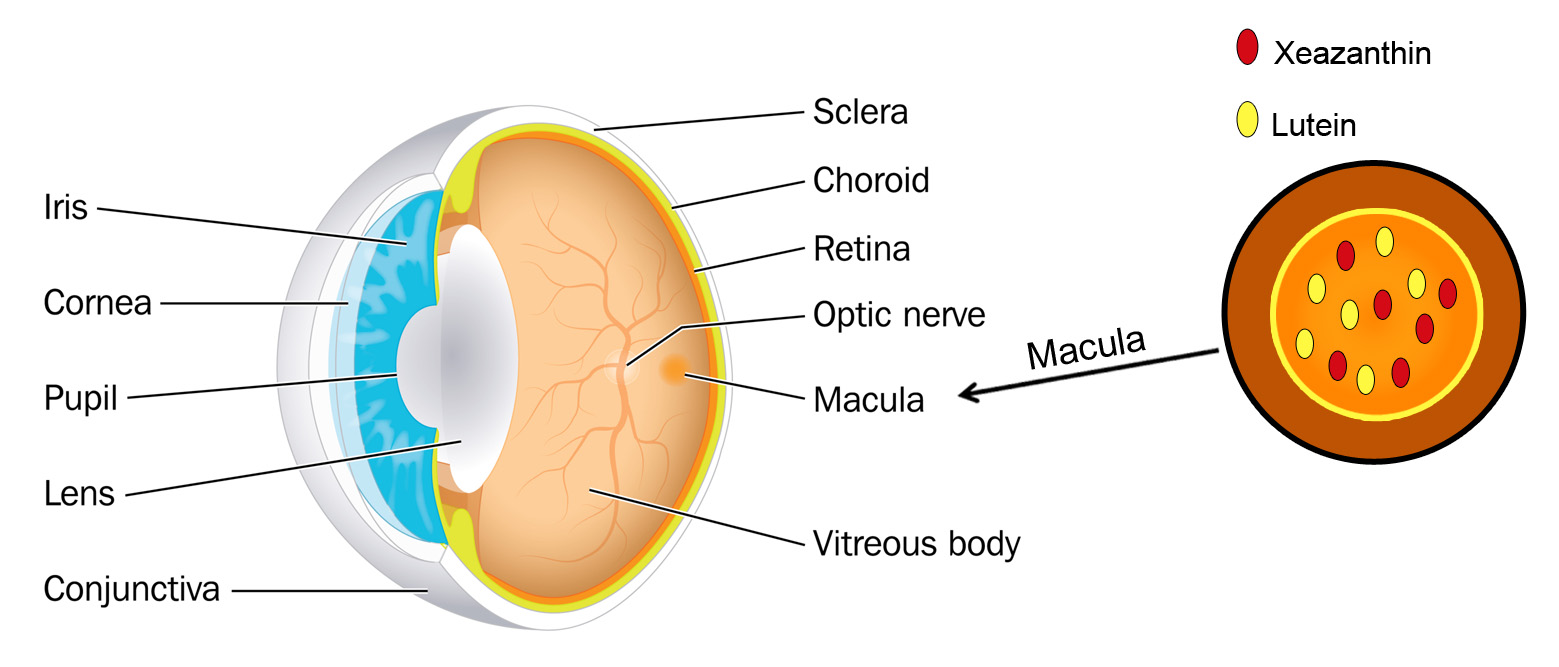- Empty cart.
- Continue Shopping
The Importance of Lutein for Eye Health

In the quest for optimal eye health, one nutrient often stands out: lutein. This carotenoid, commonly found in green leafy vegetables and other colorful foods, has been the subject of numerous studies for its potential benefits for vision and eye health.
The Role of Lutein in Eye Health
Natural Sunscreen for the Eyes
Lutein acts as a natural filter for harmful high-energy light waves like ultraviolet rays. By absorbing these rays, lutein helps protect the sensitive cells in your eyes from damage.
Antioxidant Properties
Lutein is an antioxidant, which means it fights off free radicals that can damage the cells in your eyes. This protective effect can potentially reduce the risk of age-related macular degeneration (AMD) and cataracts.
Enhanced Visual Performance
Some studies suggest that lutein can improve visual performance, including better contrast sensitivity and reduced glare. This can be particularly beneficial for people who spend a lot of time in front of screens or are frequently exposed to bright lights.
Common Sources of Lutein
Green Leafy Vegetables
Kale, spinach, and collard greens are some of the richest sources of lutein. Incorporating these into your diet can significantly boost your lutein levels.
Fruits and Other Vegetables
Other sources include corn, carrots, and oranges. These foods not only provide lutein but also offer other essential nutrients.
Eggs
Eggs contain smaller amounts of lutein compared to leafy greens, but the lutein in eggs is more easily absorbed by the body.
Recommended Intake and Supplementation
Dietary Intake
While there is no officially recommended daily intake for lutein, many experts suggest getting at least 6-10 mg per day through diet.
Supplements
Lutein supplements are also available for those who find it challenging to get enough from food alone. However, it’s essential to consult a healthcare provider before starting any supplementation.
Potential Limitations and Considerations
Absorption Issues
The body’s ability to absorb lutein can be affected by various factors, including the presence of fat in the diet and the overall health of your digestive system.
Interactions with Medications
If you’re taking any medications, particularly blood thinners, consult your healthcare provider before increasing your lutein intake, as it may interact with certain drugs.
Conclusion
Lutein plays a crucial role in maintaining eye health, offering benefits ranging from natural light filtering to antioxidant protection. While commonly found in a variety of foods, it can also be taken as a supplement for those who need it. However, it’s essential to be mindful of potential limitations and consult a healthcare provider for personalized advice.
By understanding the importance of lutein and taking steps to include it in your diet, you’re investing in long-term eye health. After all, your eyes are not just the windows to your soul; they’re also a vital part of your overall well-being.








